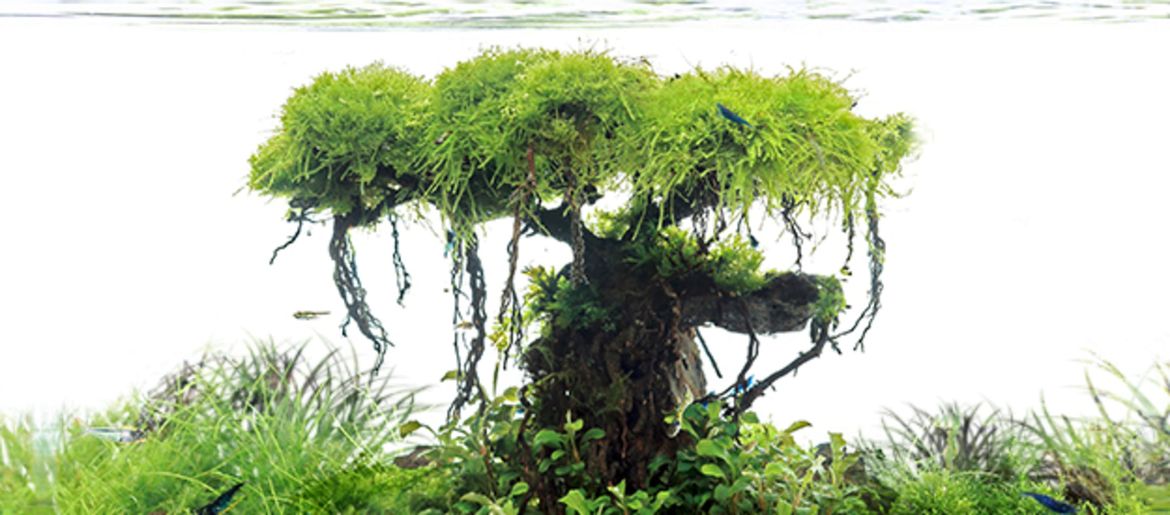Nano Aquariums
Stocking options and furnishings in the world of nano aquaristics.
Nano aquaristics has become a hobby in recent years and has come to stay. While small aquariums used to be more of a case for specialists, they have now reached the centre of their hobby, and often even the very first aquarium is such a nano tank.
This is certainly partly due to the fact that the effort required to maintain a small aquarium is significantly more pleasant - 5 litres of water can be changed faster than 200 litres - and partly due to the incredible attractiveness of a nicely decorated nanocube. We must not forget the handiness.
A small pool of 20 litres is simply set up (and moved) much faster than a giant 400-litre colossus, and you don't need any extra furniture or a structural engineer. A nano fits on the living room cabinet or even on the desk. Overall, you can simply integrate a nano aquarium much better into your living situation and enjoy it in everyday life. A very important factor here, of course, is that the industry has recognized the signs of the times and followed along with its developments. The company Dennerle can confidently stick the medal of a pioneer on the lapel - with its chic NanoCubes and Scaper's Tanks , it has brought the nano trend out of the aquarium cellars and made it socially acceptable. The right accessories helped, of course! Now nobody has to improvise anymore if they want to have a nano set up.
The beautifully designed Nano Style LED lighting and of course the practical, shrimp- proof Nano corner filter are factors that have had a significant impact on nano-aquaristics and made them much more user-friendly. There is now even a nano disc magnet with which you can get perfectly into the rounded corners of the cubes.
Incidentally, the elegantly rounded seamless front edges of the high-quality glass aquariums have become a trademark of Dennerle.
In the meantime, not only are the cube-shaped nanocubes available, but also the rectangular scaper's tanks in various sizes. The tanks offer a little more space, especially for more complex aquarium layouts and aquascapes. Their large base area is particularly beautiful in relation to the height - there is a lot of space behind for aquarium design. The Scaper's Tanks are not only ideal for aquascaping, but also for keeping dwarf crabs, because these animals in the aquarium are almost exclusively on foot and therefore the base area plays a much more important role for them than the height. They don't really need a swimming pool anyway. Since keeping fish in aquariums under 54 litres is not recommended in Germany (and is even forbidden in Austria), small aquariums were previously reserved for a small number of breeders specialising in special fish with little space requirement. In the meantime, however, dwarf shrimp and dwarf crabs are still enjoying growing popularity in aquaristics, and for these animals, the cubes and scaper's tanks are really ideal.
You can keep the colourful dwarf shrimp perfectly in an aquarium from 20 litres, but even a single fighting fish feels very comfortable in a weeded nano. What would be more suitable here than a nicely planted cube or scaper's tank with a stylish nano style LED light over it? The inconspicuous corner filter was specially developed for shrimp farming, and there is a suitable attachment filter for the Scaper's Tank. Setting up a nano aquarium is extremely easy to use - and inexpensive.
You don't need much! A bit of soil - here the water-neutral nano shrimp gravel comes in a practical two-kilo pack - so you won't have to stand around the opened 10 kg gravel bag for a long time, which is actually just annoying. This gravel is even available in black. If you want to take care of plants that require a lot of nutrients, you can use the Nano DeponitMix to bring a nutrient-rich substrate under the gravel.
A little tip:
If you do not fill the DeponitMix up to the glass, but leave about two centimetres at the edge, you will not see a two-coloured layer on the glass pane later. If you would like to keep bee shrimp, you can use the Shrimp King Active Soil, which automatically adjusts the water accordingly that bee shrimp and other shrimp that prefer soft water are comfortable in it.
If you want to have turbo-like plant growth in a nano aquarium and value a particularly plant-friendly environment, you can also use the Scaper's Soil, which is pre-fertilised and provides the plants with all the nutrients they need for 2 years.
You can also set accents on the floor with the great Plantahunter natural gravel, which can come up with unusual shapes and sizes and natural stone colours. When it comes to the design of the substrate, your imagination is limited to the four glass walls of the aquarium. And sometimes not even that - many aquascapers have already expanded their NanoCubes and built a landscape around them, which is unusual at first, but actually looks really great.
Then we come to the so-called hardscape - the establishment with roots and stones. At the roots, what is allowed is allowed (and fits in the aquarium ... if necessary, you have to use a saw).
There is a tiny limitation to the stones, if bee shrimp or other shrimps are to be kept from soft water - then calcareous stones are not well suited because they can make the water harder. You can easily find out whether the stones contain lime: Put a little vinegar essence on them, and when it foams, there is lime in the stone.
The roots and stones are rather placed in the middle ground in the aquarium. You can plant them with moss, for example, or with epiphytes such as small Anubias (for example, Anubias nana "Pangolino) or Bucephalandra. If you use planted roots in the aquarium furnishings, it is best to spray them with a little water, so that the leaves do not wither, then the aquarium is filled with so little water that it is just above the substrate - this simplifies planting considerably.
Nano aquariums have predominantly small, not quite as strong growing plants. For example, mosses or small foreground plants such as Marsilea or Glossostigma in the foreground are perfect. The middle ground is planted with slightly taller plants that grow to be about 5-10 cm tall.
Plants that are actually offered as middle ground plants have proven themselves for further back. In cubes, you should make sure that the plants don't grow too wide, in Scaper's Tank the design options are more generous thanks to the significantly larger footprint.
Then the aquarium is carefully filled with water. The rather small amounts of water can be easily poured in with a watering can, here no hose has to be brought through half the apartment. Make sure that the watering can definitely have a spout, or place a small saucer or something similar in the aquarium through which you let the water run in.
Now plop the corner filter with the suction cups into one of the two rear corners, hang the Scaper's Flow on the back wall of the aquarium. Heat-loving animals like a fighting fish get a Nano ThermoCompact heater. All you have to do is plug in the electrical devices, done!
Pro tip:
Let your aquarium run in for two to three weeks without trimmings so that sufficient bacteria can form in the filter that can break down pollutants from the water.
We hope you enjoy your new aquarium!
Chris Luckhaup
Latest reviews
-
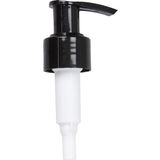 4.8 (14)
4.8 (14)Olibetta Pump Dispenser with Lock - Black
-7%- Compatible with bottles up to 1000 ml
- Pump head including tube
- Practical 1 ml dosage
£0.51 £0.55Delivery by April 23
-
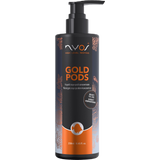 4.0 (1)
4.0 (1)Nyos Goldpods, 250 ml
-10%- For marine aquarium fish & LPS corals
- Liquid zooplankton concentrate
- Species: Calanus finmarchicus (approx. 2 mm)
£18.10 £20.00 (£72.40 / l)Delivery by April 23
-
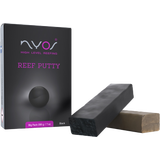 5.0 (1)
5.0 (1)Nyos Reef Putty® Adhesive, Black (200 g)
-10%- Black
- Stone Grey
- Soft two-component adhesive
- For corals & reef structures
- Can be used above & under water
£11.47 £12.75 (£57.35 / kg)Delivery by April 23
-
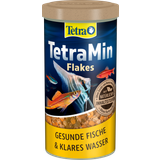 4.9 (51)
4.9 (51)Tetra TetraMin Food Flakes, 1L
- Ideal for mixed fish stocking
- Supports well-being, vitality & colours
- Promotes a normal immune system
£14.05 (£14.05 / l)Delivery by April 23
Magazine Articles:
Discover Olibetta:
-
Great Britain: Free standard delivery from £59.90
-
Free
returns -
We operate in a
climate-conscious manner. Secure payments
with SSL encryption technology
